Recently, there has been a wave of protests in Jantar Mantar regarding the use of Electronic Voting Machines (EVMs) in elections. However, the authorities have taken a drastic step by banning all protest marches under Section 144.
The ban on peaceful protest marches in Jantar Mantar has significant implications for the future of democratic dissent in India. By stifling peaceful demonstrations and silencing public outcry, the authorities are setting a dangerous precedent that threatens the very foundation of democracy. The lack of transparency and accountability in enforcing such bans raises serious questions about the motives behind these actions.
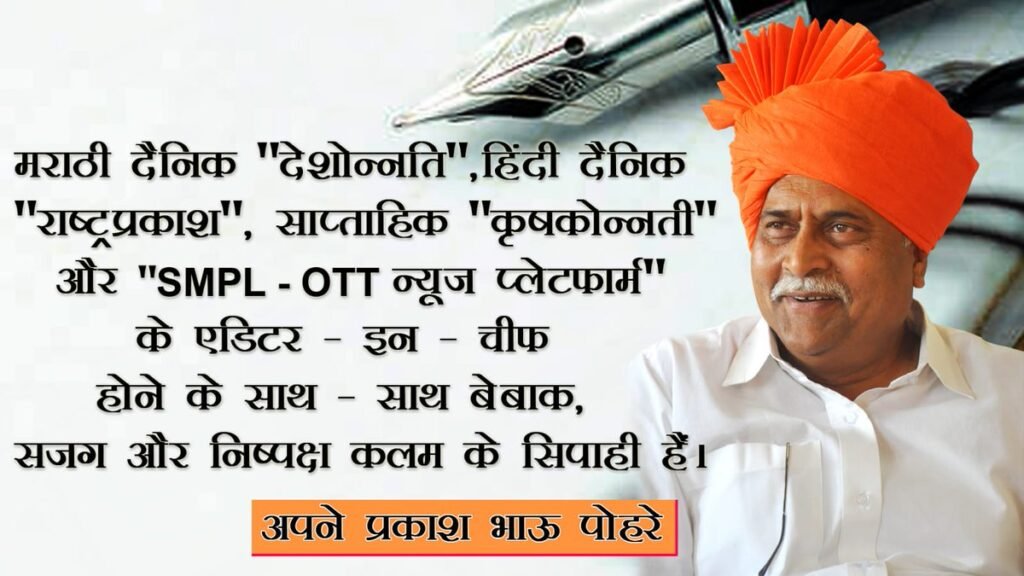
Prakash Pohare, a well-known farmer activist, recently participated in the large protest against EMV organized by Bharat Mukti Morcha at Jantar Mantar in Delhi. And now he noticed a troubling trend where the police were taking into custody even single individuals who were passersby in the vicinity of Jantar Mantar during the protests, 22-Feb-2024.
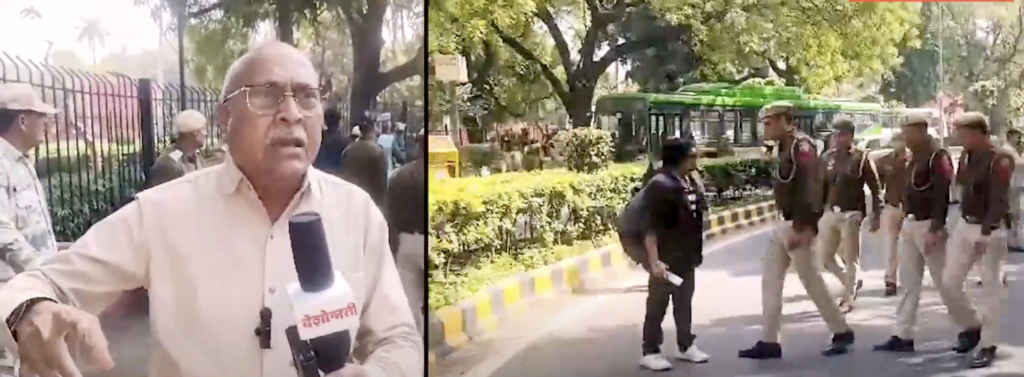
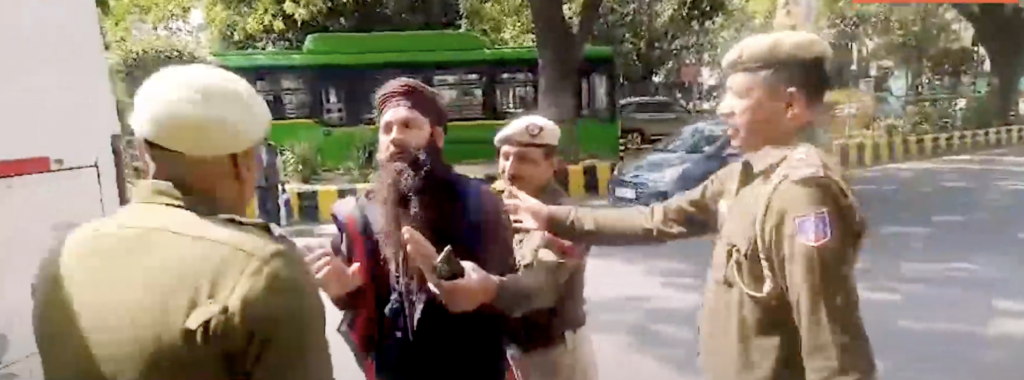
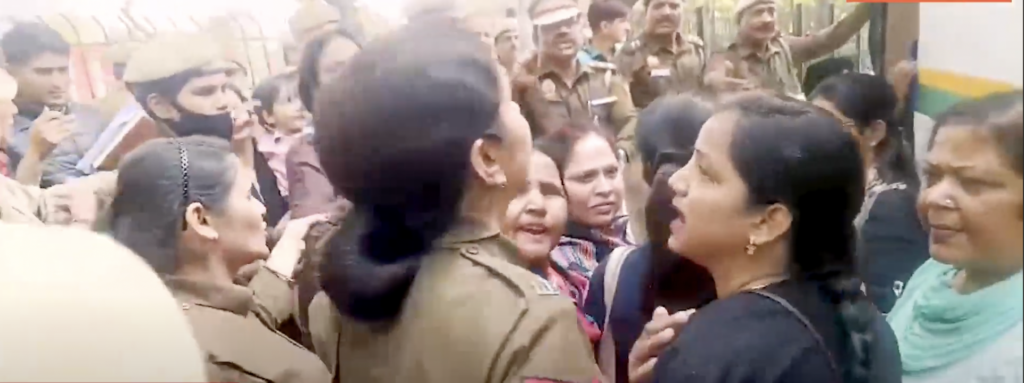
Protest Against EVM: Prakash Pohare’s On-the-Spot Movement
Jantar Mantar serves as a gathering place for individuals not just from Delhi, but from various regions across the nation, to exercise their democratic right to protest. Within a democratic system, it is common for people to engage in protests as a means to seek justice.
LIVE: Prakash Pohare Live from Jantar Mantar | Delhi | Protest
This heavy-handed approach by the authorities has raised concerns about the freedom of expression and peaceful assembly in a democratic society.
The ban on EVM protest marches in Jantar Mantar has sparked outrage among activists and individuals who believe in the right to protest peacefully. This move has been seen as a suppression of dissenting voices and an attempt to stifle any criticism of the government’s policies.
Many are questioning the motives behind this ban and whether it is a violation of their fundamental rights guaranteed by the Constitution. The inability to gather in a public place and raise awareness about issues such as electoral transparency and accountability through EVM protest marches has left many feeling frustrated and marginalized.
Peaceful Protest One’s Constitutional Right’ : Former CJI UU Lalit Raises Concerns About Rampant Use Of Section 144 CrPC In Delhi
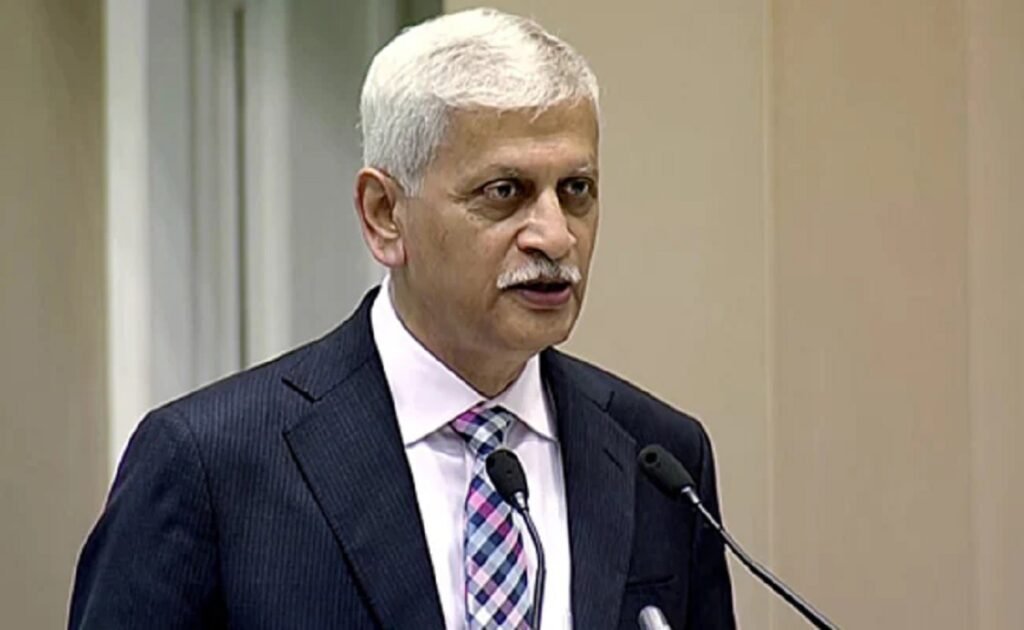
MARCH 27, 2023: Former Chief Justice of India UU Lalit expressed concern over the perpetual use of Section 144 in Delhi to curb protests and gatherings. In 2021, Section 144 was invoked over 6,100 times in Delhi. Justice Lalit acknowledged that invoking Section 144 during the pandemic to ensure social distancing was justified, but said it cannot be used to curb peaceful protests or regulate routine business. A report by advocates found Section 144 was invoked unnecessarily for things like CCTV installation and business regulations.
Justice Lalit was commenting on a report titled ‘The Use and Misuse of Section 144 CrPC: An Empirical Analysis of all the Orders Passed in 2021 in Delhi’ by a group of Delhi-based advocates comprising Vrinda Bhandari, Abhinav Sekhri, Natasha Maheshwari, and Madhav Aggarwal. This report highlighted the extensive use of Section 144 by the Delhi police in 2021 and the various reasons for its invocation.
Justice Lalit expressed concern over the use of Section 144 to curb peaceful protests, stating that participating in peaceful protests is a constitutional right and cannot be denied. He acknowledged the need for vigilance by the police during protests to prevent violence and justified the imposition of Section 144 during the pandemic for social distancing. However, he criticized the use of Section 144 to curtail or regulate normal business ventures, indicating that it should not be utilized for purposes not envisioned by the law.
The report highlighted that the Delhi police invoked Section 144 a staggering 6,100 times in 2021.
9 people from Punjab going to Jantar Mantar for ‘EVM Hatao Morcha’ stopped at railway station
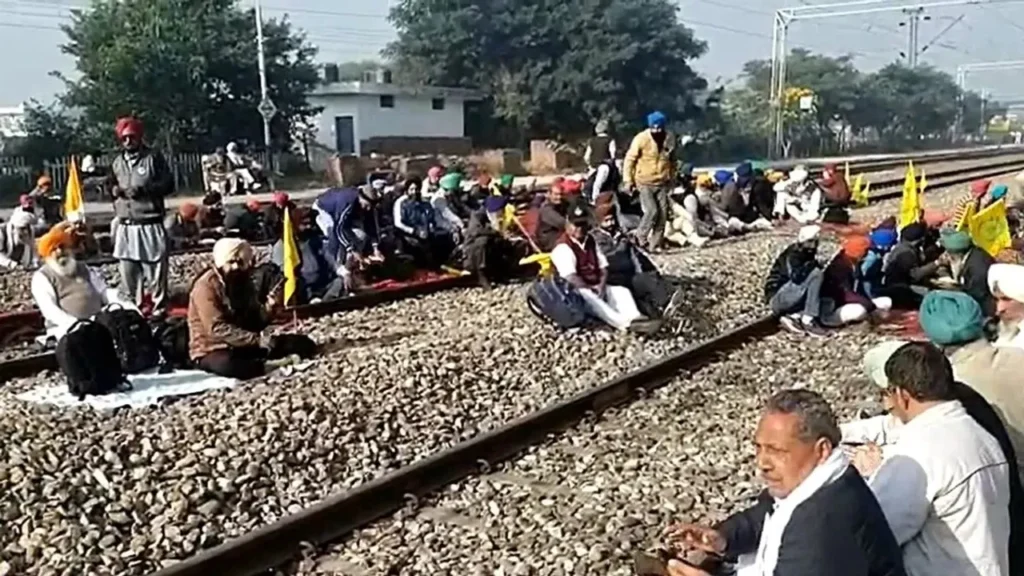
22 February 2024: Nine people from Punjab going for a demonstration at Jantar Mantar were stopped at Sarai Rohilla Railway station here on Thursday morning, police said.
The ‘EVM Hatao Morcha’ is a common platform of NGOs, the I.N.D.I.A. bloc parties, social organizations, intellectuals, and citizens of the country, demanding a return to the ballot paper method.
Section 144 is imposed across the national capital due to which no gathering or demonstration is allowed, they said. An official said they came from Punjab to stage a protest at the Jantar Mantar as part of the ‘EVM Hatao Morcha’ and old pension scheme.
There Cannot Be a Complete Ban on Protests at Jantar Mantar, Says the Supreme Court
23/JUL/2018: The bench said there is a need to strike a balance between conflicting rights such as the right to protest and the right of citizens to live peacefully.
The Supreme Court today (July 23) said there cannot be a “complete ban” on holding protests and sit-ins at Jantar Mantar here, and asked the Centre to frame guidelines for according sanctions to such events.
A bench comprising Justices A.K. Sikri and Ashok Bhushan said there was a need for striking a balance between conflicting rights such as the right to protest and right of citizens to live peacefully.
“There cannot be a complete ban on holding protests at places like Jantar Mantar and Boat Club (near India Gate),” the bench said, while directing the Centre to frame guidelines on the matter.
The verdict came on a batch of petitions, including the one filed by Mazdoor Kisan Shakti Sangathan, challenging the decision of the National Green Tribunal which had banned all kinds of protests at Jantar Mantar and Boat Club.
The Supreme Court has previously ruled that protest marches cannot be banned completely, as they are a crucial way for citizens to express dissent and demand accountability from the government. However, the recent ban on protests in Jantar Mantar seems to be in direct violation of this ruling.
Protest marches have historically played a significant role in bringing about social change and holding the authorities accountable. They provide a platform for individuals to come together and peacefully voice their grievances. By banning protest marches, the authorities are essentially silencing the voices of the people.
The ban on protest marches in Jantar Mantar has led to widespread condemnation from various quarters. Activists and civil society organizations have criticized the move, stating that it goes against the principles of free speech and expression. Many citizens have taken to social media to express their outrage and demand a reversal of the decision.
Source: TheWire, DH, Sabrangindia-Image, NewDrumDesk-image, Sabrangindia, Youtube, GR -Image
Also Read:
